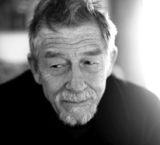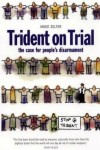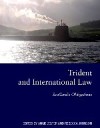After summarising the findings of the Third International Conference on the Humanitarian Impacts of Nuclear Weapons, the Austrian hosts launched a national pledge that creates exciting new opportunities for all governments and civil society to stigmatise, ban and eliminate nuclear weapons.
The Third International Conference on the Humanitarian Impacts of Nuclear Weapons (HINW), attended by at least 158 governments and a wide range of civil society actors, closed on Tuesday with a commitment and call by the Austrian government to “identify and pursue effective measures to fill the legal gap for the prohibition and elimination of nuclear weapons”. This commitment formed part of a compelling “Austrian Pledge” delivered at the end of the Conference by the Secretary-General of Austria’s Foreign Ministry, Dr Michael Linhart. He said that that the facts and findings of the Conference - as well as previous HINW conferences held in Oslo and Nayarit - had convinced Austria to go beyond the Chair’s Summary which was the expected outcome of the meeting.
Read by Ambassador Alexander Kmentt, who had done more than anyone else to make the Vienna HINW Conference an organisational and substantive success, the Chair’s Summary presented a comprehensive and balanced “birds eye view”, highlighting the main findings from the in-depth panels and the major themes drawn from the closing debate, in which over 100 governments and some representative NGOs from all round the world had participated.
It was the Austrian Pledge, however, that will go down in history. Driven by “the imperative of human security for all and to promote the protection of civilians against risks stemming from nuclear weapons”, Austria pledged to “cooperate with all relevant stakeholders, states, international organisations, the International Red Cross and Red Crescent Movements, parliamentarians and civil society to stigmatise, prohibit and eliminate nuclear weapons in light of their unacceptable humanitarian consequences and associated risks”.
Dr Linhard also called on “nuclear weapons possessor states” to take “concrete interim measures to reduce the risk of nuclear weapons detonations, including reducing the operational status of nuclear weapons and moving nuclear weapons away from deployment into storage, diminishing the role of nuclear weapons in military doctrines, and rapid reductions of all types of nuclear weapons.”
The Austrian Pledge is being widely interpreted as a clarion call for negotiations to ban nuclear weapons. Carefully worded, it unmistakably takes forward the findings of the Nayarit Conference, including the conclusions of the Chair, Mexico’s Vice Minister for Multilateral Affairs and Human Rights, Juan Manuel Gómez Robledo, that the “broad-based and comprehensive discussions on the humanitarian impact of nuclear weapons should lead to the commitment of states and civil society to reach new international standards and norms, through a legally binding instrument”.
With the next review conference for the 1968 Non-Proliferation Treaty (NPT) scheduled for May 2015, Austria promised to present the facts-based discussions, findings and compelling evidence from the Vienna HINW conference to “all relevant fora”, particularly the United Nations and NPT. In fact, the designated Chair of the 2015 NPT conference, the distinguished Algerian ambassador Taous Feroukhi, co-chaired one of the Vienna panels, on “Scenarios, Challenges and Capabilities regarding Nuclear Weapons Use and other events”. With most NPT states parties welcoming how the Vienna, Nayarit and Oslo conferences have reframed the debate and re-energised efforts to fulfill the NPT’s nuclear disarmament (Article VI) obligations, at least 45 of them explicitly called for further multilateral negotiations to prohibit nuclear weapons. It is clear that most NPT states see humanitarian disarmament approaches and implementation of the NPT as mutually reinforcing. This is hardly surprising, since one of the launch pads for the recent humanitarian initiatives on nuclear weapons was the 2010 NPT review conference. Framing the disarmament action plan in the final outcome document from the 2010 NPT conference was this important paragraph: “The Conference expresses its deep concern at the catastrophic humanitarian consequences of any use of nuclear weapons and reaffirms the need for all States at all times to comply with applicable international law, including international humanitarian law.” So it was good that the Vienna HINW conference brought together two of the diplomats most responsible for the successful outcome of the 2010 NPT Review Conference: its Chair, Ambassador Libran Cabactulan of the Philippines, and Axel Marschik, the Austrian ambassador who had coordinated the NPT agreements on practical disarmament steps in 2010.
For the first time in the HINW process two NPT nuclear-armed states - the United States and Britain - attended, as well as India and Pakistan, two nuclear-armed nations that have rejected the NPT. In addition, though the Chinese government was not formally represented behind a name plate, they sent observers to Vienna to keep them in the loop. Though their participation was widely welcomed, the statements from some of these nuclear-armed governments were troubling, underlining their desperate reliance on nuclear weaponry despite all the evidence demonstrating the security dangers and military uselessness of such weapons of mass suffering.
The United States shocked many - including its own allies - by following the powerful testimonies of two survivors of American nuclear testing, Michelle Thomas of Utah, USA and Abacca Anjain-Maddison of the Marshall Islands, with a tone deaf, standard text that just reiterated US nuclear policies and positions. Expressions of US support for the Comprehensive Test Ban Treaty (CTBT) are not enough, when it looks as if it will pass its 20 year anniversary without entering into force, despite overwhelming support from the American people as well as ratifications accomplished by over 160 other UN nations (the US, like China, signed but has not ratified).
A later US statement from Ambassador Adam Scheinman tried to regain some of the goodwill engendered by the Obama administration’s decision to participate in the Vienna HINW conference, but still largely missed its mark. Evoking the speech President Obama gave in Prague in April 2008 by saying that “the United States stands with all those here who seek the peace and security of a world without nuclear weapons”, the US statement noted the “growing political will” to pursue a practical disarmament agenda. Referring to “strategic stability” with Russia, the US was clearly hoping that its post cold war reductions in the role and number of its nuclear weapons would suffice. No doubt many will be glad to hear that the US wants to work with the UK and others to “trust and verify further nuclear reductions” and deal with relevant “technical problems”. If the US and UK governments can take the lead in putting the technical and verification solutions in place to persuade their nuclear-armed partners, rivals and nuclear establishments to achieve genuine disarmament, that would be very helpful. But that doesn’t mean they can carry on modernising and producing nuclear weapons. Obama’s Prague endorsement of the “voices for peace and progress” was evoked, but the US still ignores that these voices are overwhelmingly raised in favour of banning nuclear weapons. As repeatedly acknowledged in Vienna, this will increase the pressure on all the nuclear-armed states to accelerate and accomplish the kinds of steps that the United States says it wants to take.
Speaking on behalf of the British government, ambassador Susan le Jeune d’Allegeershecque agreed that “devastating humanitarian consequences could result from the use of nuclear weapons”. The point, she said, was what conclusions to draw from that fact. Although the UK has long argued that the banning and elimination of chemical and biological weapons is conducive to national and international security, she argued that nuclear weapons ensure “stability and security” that might somehow be jeopardised by steps to ban and eliminate them. Therefore, the UK only envisaged reducing its nuclear warheads to “180 by the mid-2020s”, as it wanted to “maintain a minimum credible nuclear deterrent” for as long as might be deemed “necessary”.
This statement was received glumly by British participants in Vienna, including a number of MPs from the Westminster Houses of Parliament, the European Parliament, and the Scottish Parliament. Also in attendance was a Scottish Government official responsible for dealing with nuclear accidents and emergencies in Scotland, which hosts two nuclear weapons bases at Faslane and Coulport, just north of Glasgow. Apparently the Scottish Government had requested that this knowledgeable official be included on the UK delegation to the Vienna HINW Conference, but heard nothing back.
India and Pakistan also spoke. Referring to the “shared concern on the serious threat to the survival of mankind that could be posed by nuclear weapons” India argued for “increased restraints on the use of nuclear weapons in a step by step manner”, and suggested that the Conference on Disarmament (CD) ought to do this job. Only 65 states are members of the CD, which has been deadlocked since it concluded negotiations on the CTBT in 1996.
Pakistan also accepted that the “use of nuclear weapons will have far reaching destructive impact even beyond the zone of conflict”. Recognising that “only real solution for negating this threat is the total elimination of nuclear weapons” Pakistan suggested the CD as the place to commence negotiations on a “comprehensive convention” that would prohibit all aspects of nuclear weapons including their possession, production, use and threat of use. However, Pakistan’s opposition to negotiations on the small step of a fissile materials cut-off treaty has been a notable cause of the CD’s decades of deadlock, prompting the majority of governments and civil society to conclude that the only appropriate forum and process for negotiating a nuclear ban treaty must be “open to all and blockable by none”, as underscored in the statement from the International Campaign to Abolish Nuclear Weapons (ICAN).
Some of the strongest statements were from African and Latin American countries, many of whom put their weight behind negotiations to ban nuclear weapons. In addition to many national statements, Opanal, the Agency for the 1967 Tlatelolco Treaty and nuclear free zone that prohibits nuclear weapons throughout Latin American and the Caribbean said: “We must act to delegitimize nuclear weapons at the political level and to criminalize them as has been done in the case of other weapons of mass destruction”.
South Africa, which “voluntarily destroyed its nuclear weapons” in the 1990s, showed what “can and must be done”. Recognising that it had a “legal obligation and moral responsibility to contribute to the humanitarian initiatives”, the South African government was therefore “currently considering options, including our role in any follow-on activities and meetings”.
In her opening testimony to Vienna, atomic bomb survivor Setsuko Thurlow from Hiroshima (and now Canada) wanted the 70th anniversary of the bombing of Hiroshima and Nagasaki in August 2015 to propel governments to achieve the goal of prohibiting and eliminating all nuclear weapons, urging: “Let us start this process, beginning with negotiations on a ban treaty, here and now in Vienna.”
Austria’s courageous Pledge - and many, but not all, governments - have heeded the wisdom of Setsuko and the other indomitable nuclear weapon survivors, the Red Cross and humanitarian and disarmament experts. Though formal negotiations have not yet been launched, filling the legal gap between prohibition and elimination will necessitate a universal treaty that at the very least bans the use, deployment, production, stockpiling, transfers and proliferation of nuclear weapons, requiring nothing less than their total elimination.
ENDS
>>>> SENT 10 December 2014 >>>>>>>>>>>>>
dear colleagues,
As some of you may know by now, the Third International Conference on the Humanitarian Impacts of Nuclear Weapons in Vienna (HINW14Vienna) came to a positive conclusion on Tuesday 9 December 2014.
158 states attended, including four nuclear-armed states (India, Pakistan, UK and USA). In addition, China had sent observers, so in reality 159 states were there - plus a very large number of civil society representatives from the Red Cross, humanitarian response agencies, non-governmental organisations, and a significant number of elected representatives from various parliaments.
The International Campaign to Abolish Nuclear Weapons (ICAN), the growing global network of some 400 civil society organisations in over 90 countries, organised a Civil Society Forum over the weekend before HINW14vienna, which brought together over 600 activists and analysts, over half of whom also participated in the intergovernmental conference, together with representatives of academia and NGOs.
Here are the two key documents to come out of the Vienna Conference:
* The Chair’s Summary
http://www.reachingcriticalwill.org/images/documents/Disarmament-fora/vienna-2014/ChairSummary.pdf
* Austrian Pledge
http://www.reachingcriticalwill.org/images/documents/Disarmament-fora/vienna-2014/Austrian_Pledge.pdf
The Acronym Institute is a founding partner of ICAN, so I am also sending you the link to ICAN’s press release, issued after the end of the conference:
http://www.reachingcriticalwill.org/news/latest-news/9498-austria-pledges-to-work-for-a-ban-on-nuclear-weapons
An article for openDemocracy (publication likely to be Friday 12 December) will provide further reflections and analysis about the Vienna Conference and its outcomes.
OpenDemocracy published 2 articles from me on HINW14Vienna, on 8th and 9th December, which also provide relevant links to statements from the UN Secretary-General, Pope Francis, the President of the International Red Cross, . Reflections on the first day, titled “Nuclear survivors’ testimony: from Hell to Hope” can be accessed here:
https://www.opendemocracy.net/5050/rebecca-johnson/nuclear-survivors’;-testimony-from-hell-to-hope
You can find my opening-day article “Gathering Speed to Ban Nuclear Weapons”, published 8 December 2014:
http://bit.ly/1yGSgoE
For further information, please also visit the websites of the Acronym Institute: http://www.acronym.org.uk/ ;
ICAN http://www.icanw.org/
and Reaching Critical Will (a project of Women’s International League for Peace and Freedom) http://www.reachingcriticalwill.org/
I hope you find these resources useful and interesting.
Rebecca
—
“AS A WOMAN MY COUNTRY IS THE WHOLE WORLD” (Virginia Woolf)
Dr Rebecca E. Johnson FRSA
Executive Director, Acronym Institute for Disarmament Diplomacy
24 Colvestone Crescent, London E8 2LH
United Kingdom
Tel: +44 (0) 207 503 8857
mob: 07733360955
WEBSITE: www.acronym.org.uk
International Steering Group, ICAN International Campaign to Abolish Nuclear Weapons
International Panel on Fissile Materials
CND Vice President
ActionAWE and AWPC co-founder


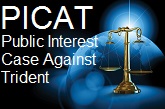
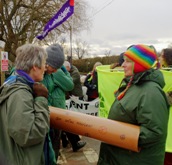








 Nuclear weapons crime in the UK has been reported to Thames Valley Police.
Nuclear weapons crime in the UK has been reported to Thames Valley Police.



